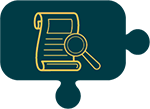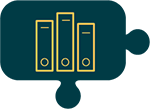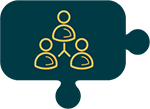Position Number: 18950
Position Title: Risk Analyst
Group/Team: Risk and Compliance / Financial Advisory and Risk
Employment Type: Ongoing, full-time
Salary Range: $78,449 - $83,868 pa plus 15.4% superannuation
Classification: APS Level 5
Location: Level 11, 452 Flinders Street, Melbourne VIC 3000
Reporting to: Assistant Director, Risk Analysis
Agency Employment Act: Public Service Act 1999
Applications close at 11:59pm on 15 November 2022
Applications must include the following cover sheet: TEQSA job application cover sheet [DOCX 1MB]
About us
The Tertiary Education Quality and Standards Agency (TEQSA) is Australia’s independent national quality assurance and regulatory agency for higher education. TEQSA’s purpose is to deliver quality assurance that protects the interests of students and the reputation and standing of Australian higher education.
As an independent quality assurance and regulatory agency, TEQSA adopts a risk-based approach that is guided by principles of necessity, risk, and proportionality, and which supports quality, diversity, innovation, and excellence in tertiary education.
TEQSA has three strategic objectives in delivering its purpose:
- Promote and support good practice and effective self-assurance across the sector.
- Identify, analyse, and respond to risks to the sector.
- Ensure compliance with applicable legislation through effective and efficient regulation.
About you
- Are you passionate about contributing to the excellence of Australian higher education?
- Are you a strategic thinker with a drive for innovation and collaboration?
- Do you want to work in a challenging, dynamic, and rewarding environment that is mission-focused?
Our culture
Our organisational culture reflects our Culture Plan 2021 and the core values and behaviours that guide how we approach our work and interact with each other.
The core values by which we operate include:
- Trust – We have confidence in each other to do our best. We encourage open and honest conversations that focus on the issue, not the person. We promote a supportive and safe workplace environment.
- Respect – We approach every situation with kindness, compassion, and an open mindset. We value people, the range of views and experience they bring, and the work they undertake.
- Accountability – We hold ourselves and each other accountable for our actions, how we work together, and the quality of what we deliver. We gather feedback, reflect, and act on opportunities for improvement.
- Collaboration – We draw on our collective strength by encouraging each other to contribute to the achievement of shared objectives. We provide context and information to help others succeed.
At TEQSA, we are building a working environment that aligns with our cultural values and cultivates a rewarding, stimulating, and engaging workplace. If our organisational culture resonates with you, we want to hear from you.
How we value our employees
TEQSA is committed to investing in its people. So, what’s on offer for you?
- A full-time and secure role in a for-purpose organisation that protects the interests of students and the reputation and standing of Australian higher education.
- Flexible working arrangements, including working from home to balance work and personal life.
- Conveniently located spacious office close to public transport in the heart of Melbourne CBD. We have relocated to a brand-new, interior-designed office with state-of-the-art technology and facilities designed for flexibility, collaboration, and wellbeing.
- Generous leave entitlements, including study leave to support your professional development, personal leave, and paid time off over Christmas!
- Competitive superannuation at 15.4 per cent and remuneration.
- Professional development that is supported and encouraged so your career continues to grow as you enhance your technical and leadership skills and capabilities and build a career at TEQSA.
- Free Employee Assistance Program for you and your immediate family members. Our external partner is a leading provider of wellbeing and mental health support services.
- Workplace diversity and inclusion. TEQSA welcomes people with diverse skills, experiences, perspectives, and backgrounds. TEQSA encourages applications from Aboriginal and Torres Strait Islander People, people with disabilities, people that identify as LGBTQIA+, and people from culturally and linguistically diverse backgrounds.
Our opportunity
TEQSA currently has an opportunity in the Financial Advisory and Risk Team, which sits within the Risk and Compliance Group.
The Risk and Compliance Group sits within the Regulatory Operations Division, which is responsible for delivering TEQSA’s core business of undertaking regulatory assessment under the Tertiary Education Quality and Standards Agency Act 2011 (TEQSA Act). This includes the assessment of applications for (re)registration and (re)accreditation against the Higher Education Standards Framework (Threshold Standards) 2021 (Threshold Standards) as well as applications under the Education Services for Overseas Students Act 2000 (ESOS Act) and its associated standards. The Division has responsibility for the active case management of registered higher education providers covering all aspects of regulation and quality assurance.
The Financial Advisory and Risk Team is responsible for undertaking quantitative and qualitative analysis of information and intelligence related to risk to inform TEQSA’s regulatory assessment and compliance activity. The work of the team is key to ensuring that TEQSA’s regulatory and compliance activities are proportionate, reflect risk and regulatory necessity. The team work together with TEQSA’s Information Management team, to source, manage and process data from various sources. The team is made up of risk analysts and financial analysts, who collaborate closely to provide specialist and technical advice and services.
About the position
As the Risk Analyst, you will work under limited direction to provide specialist technical services, including undertaking risk assessments of higher education providers, analysing information from a range of sources, and translating intelligence into appropriately framed and well-evidenced assessments. You will also undertake tasks which are moderately complex to complex in nature to support the delivery of the annual risk assessment cycle and relevant monitoring programs.
The core duties of the APS5 Risk Analyst role include:
- providing logistical and administrative support to enable the smooth delivery of risk assessments, including the preparation of procedural and other documentation and management of communications and interactions with providers and other stakeholders.
- undertaking risk-based assessments as required, reviewing, and analysing evidence submitted by providers and derived from other sources, interpreting legislation, and applying sound judgment to prepare well-argued recommendations for consideration by decision-makers.
- integrating qualitative and quantitative data in undertaking risk analysis and risk monitoring tasks and activities.
- contributing to the preparation of reports to TEQSA’s Commission and senior management to support decision making and education, including relying upon internal and external facing data, research, analysis, and commentary.
- contributing to the continuous improvement of TEQSA’s risk assessment and risk monitoring program and processes.
- building, maintaining, and applying work knowledge to deliver timely and effective outcomes, including knowledge of relevant legislation, policy, procedures, and guidelines.
- working effectively and harmoniously in a team, managing competing priorities and requests, solving problems, and providing advice, training and support to others as required.
Our ideal candidate
TEQSA is looking for a high-performing team member who is passionate about contributing to the excellence of Australian higher education.
Experience working in a regulatory environment and/or experience working in the Australian higher education sector is highly regarded.
Our ideal candidate has the following:
- Well-developed analytical skills including the ability to collect, analyse, interpret, monitor, and report on data/trends including a demonstrated ability to undertake analysis of both qualitative and quantitative datasets.
- Sound administrative skills including the ability to prepare documentation and reporting systems to support the delivery of regulatory risk analysis and risk monitoring programs.
- Strong written and verbal communication skills including experience communicating complex data and information to a range of audiences verbally and/or in the form of high-quality concise and accurate reports and briefs.
- Ability to work under limited direction, to be proactive in making decisions and exercising judgement within defined parameters and manage competing priorities and deadlines.
- Ability to build and maintain cooperative relationships with internal and external stakeholders.
How to apply
Your application should include the following items:
- a TEQSA job application cover sheet
- a CV that demonstrates your experience in relation to the role (maximum two pages)
- a two-page pitch (1000 words or less) detailing:
- how your skills and experience address the ‘our ideal candidate’ section (what makes you the best candidate for the position). Please use specific examples
- the value you can add to TEQSA’s Risk and Compliance Group.
Once prepared, please submit your completed application to recruitment@teqsa.gov.au.
Handy hints
Eligibility
The successful applicant must:
Failure to satisfy any of the above conditions may result in the withdrawal of an offer of employment or termination of employment.
Other relevant information
- this recruitment process is being used to fill an ongoing vacancy
- a merit pool of suitable applicants will be created from this process and may be used to fill similar ongoing and non-ongoing vacancies within TEQSA. It is active for 18 months from the date of this advertisement.



